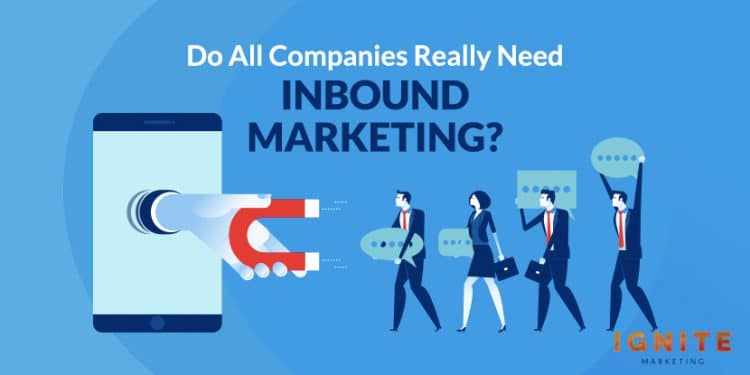


If you've done any internet research about how to increase revenue for your business, you've probably come across the phrase "inbound marketing." Almost every marketing website is harping on and on about the effectiveness of this relatively new strategy. But is it worth the effort?
So, do all companies really need inbound marketing? Yes, all companies really need inbound marketing. It's the most cost-effective way to build brand awareness, generate qualified leads, and turn those leads into conversions.
If done correctly, inbound marketing can provide an incredible revenue boost at a relatively low cost.

Inbound marketing is the process of attracting and nurturing leads through the creation and sharing of helpful content.
Unlike outbound marketing, in which companies show interruptive advertisements to consumers who aren't actively looking for a product or service, inbound marketing provides advice and information to consumers who are looking for help with a specific topic.
Inbound marketing has taken over the business world because it brings in leads who are more interested in your product or service than outbound methods do. It also brings in these
The modern consumer doesn't want to be sold to. They want to be helped.
In the old days, pelting consumers with salesy "BUY NOW!" messages was effective, mainly because consumers had very few information channels available to them.
If a consumer wanted to buy hand washing soap in the 1950s, they couldn't whip out their phone and type "best soap for washing hands" into Google. Their knowledge of the available soaps on the market was limited to what was advertised on TV, in newspapers, on the radio, or in any direct mail ads they took out of the mailbox.
Nowadays, though, savvy consumers can use the internet to research soap or whatever product or service they're considering purchasing. They can perform hours on hours of research, depending on how dedicated they are. They're less affected by outbound marketing tactics that interrupt them and try to sell them something. Subtler marketing methods like creating helpful content that consumers can find when they make a Google search are far more effective.
That's the primary reason companies need to embrace inbound marketing: it's the most effective marketing option available.
To back up this claim, here are some of the secondary benefits inbound marketing can provide.

Before consumers can spend money on your products or services, they need to be aware of your company's existence.
Inbound marketing helps build brand awareness by placing content created by your company into communication channels that consumers are actively looking for content on. Some of these channels include Google search results and social media platforms like Facebook or YouTube.
Besides providing initial knowledge of your business, here are some other benefits that brand awareness offers.
If you're developing a marketing strategy, you're also likely developing a sales funnel. To get consumers into this sales funnel, you first need to get their contact information.
Companies obtain this contact information through the process of lead generation. Inbound marketing is an excellent way to acquire qualified leads, mainly because consumers are happy to trade their contact info in exchange for a guide, a collection of useful data, a free software demo, or some other offer.
A piece of content created specifically to generate leads is called a lead magnet. If you've ever given your email address to gain access to a free download, you've been involved in another company's lead generation process.

Once a consumer becomes a lead by giving you their contact information, you need to guide them down your sales funnel by building a trust-based relationship, sending them additional useful content, and eventually asking them to make a purchase.
The best examples of lead nurturing will identify what content a consumer wants at certain points in the buyer's journey.
Inbound marketing allows for a terrific lead nurturing process. Because consumers who have become leads already trust you to provide useful advice and content, they will be more open to any suggestions you might have going forward. And as those suggestions will inevitably include using your product or service, forming your lead nurturing process with an inbound philosophy in mind will inevitably increase sales and revenue.
If you're operating on a tight budget, inbound marketing can be much more attractive than the outbound alternative.
While you can increase the effectiveness of an inbound strategy by spending money on it, you can start promoting your business with inbound marketing by spending virtually nothing.
Here are the components of a basic inbound marketing campaign, complete with the expected costs.

Inbound marketing is an essential piece of the revenue puzzle for any modern business.
No matter which industry your business is in, consumers are looking for useful content related to your industry that can help them solve their problems.
By creating useful content that helps consumers solve their problems, you can attract consumers to your website and convince some to enter your sales funnel.
As long as your marketing strategy covers every step of the sales process ‒ from brand awareness all the way to conversion ‒ you can use inbound marketing to generate a substantial ROI and grow your business larger than you ever dreamed possible.
